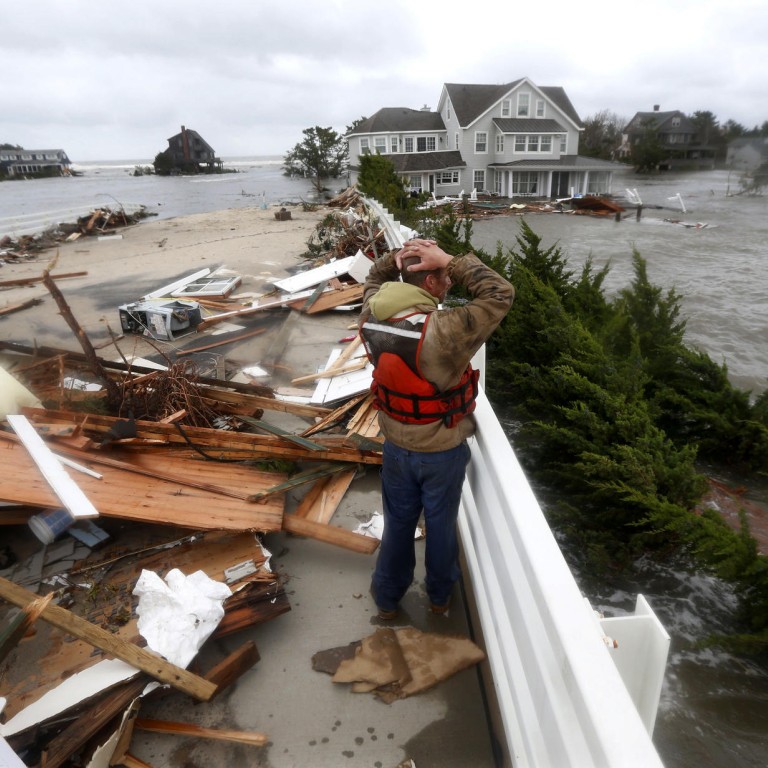
Obama calls for climate change measures after dire new report
A new study offers dire predictions about the economic effects of climate change on key sectors in the US, barring immediate action
The White House called yesterday for urgent action to combat climate change, as it released a study on the impact of global warming across the United States and key sectors of the nation's economy.

"Climate change, once considered an issue for a distant future, has moved firmly into the present," the report says. "Corn producers in Iowa, oyster growers in Washington state and maple syrup producers in Vermont are all observing climate-related changes that are outside of recent experience."
US President Barack Obama vowed during his victorious 2008 presidential campaign to make the United States a leader in tackling climate change and the "security threat" it poses.
But he has failed to convince Congress to take significant action during his subsequent years in office.
As part of a new push on the issue, Obama was to give televised interviews with various meteorologists yesterday to discuss the findings of the third US National Climate Assessment.
Hundreds of the nation's best climate scientists and technical experts - from both the private and public sectors - worked on the report, which examines the impact of climate change today and makes forecasts for the next century.
Even though the nation's average temperature has risen by as much as 1.9 degrees since record keeping began in 1895, it's in big, wild weather events where the average person feels climate change the most, said co-author Katharine Hayhoe, a Texas Tech University climate scientist. Extreme weather such as droughts, storms and heat waves hit us in the pocketbooks and we can see them with our own eyes, she said.
The researchers warned of drought in the state of California, prairie fires in Oklahoma and rising ocean levels on the East Coast, particularly in Florida, most of them caused by humans.
Sea level rise is also eating away at low-lying areas in places like Mississippi.
In the Southeast and Caribbean regions, home to more than 80 million people and some of the nation's fastest-growing metropolitan areas, "sea level rise combines with other climate-related impacts and existing pressures such as land subsidence, causing significant economic and ecological implications."
The report cited a locally sponsored study as saying that coastal areas in Alabama, Louisiana, Mississippi and Texas could face annual losses of US$23 billion by 2030, about half of that related to climate change.
The impact of global warming is unevenly distributed across US territory, with spectacular effects in Alaska, which researchers said warmed twice as fast as the rest of the country.
"Arctic summer sea ice is receding faster than previously projected and is expected to virtually disappear before mid-century," the report said. It warned that rising permafrost temperatures would cause drier landscapes, more wildfire, changes to wildlife habitat and greater infrastructure maintenance costs.
Facilities and roads that are vital to the US economy are also under the threat of rising water levels or an increase in already reported tropical storms hitting coastal areas, the report says.
There is scientific debate about when storms such as Hurricane Sandy, or other weather events such as the current drought in Texas and Oklahoma, are linked to climate change.
"Oklahoma is burning, both literally and figuratively, as a combination of drought, record heat, high winds and low relative humidity created the perfect wildfire conditions," state climatologist Gary McManus wrote in an assessment.
Even so, asked if the drought had anything to do with global warming, McManus had a ready reply: "I don't think we would chalk this up to climate change. This is part of the drought cycle we see in the Great Plains."
